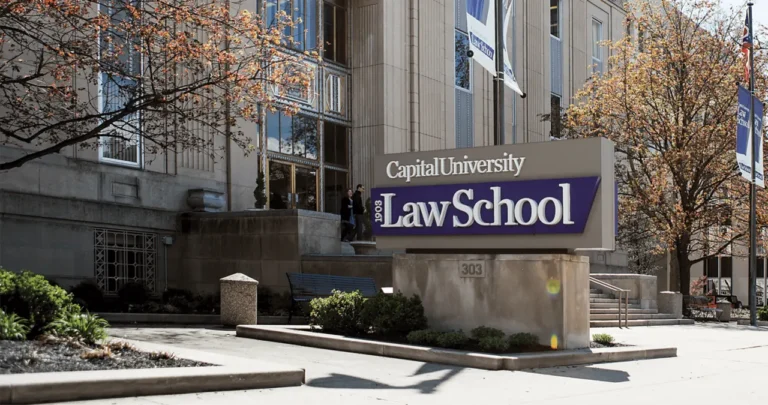Introduction to Law School
Law school represents a transformative journey for those pursuing a career in the legal profession. It is an intellectually rigorous environment designed to cultivate analytical thinking, persuasive communication, and a deep understanding of legal principles. Whether you aspire to argue cases in court, negotiate corporate deals, or shape public policy, law school provides the foundation necessary to succeed in a competitive field.
However, the path to becoming a lawyer is not easy. Law school demands long hours of studying complex case law, mastering legal writing, and engaging in intense classroom discussions. Many students enter with a passion for justice but soon realize the reality involves meticulous research, high-pressure exams, and a steep learning curve. Understanding what law school truly entails—before applying—can help you determine whether this challenging yet rewarding path aligns with your goals.
Why Attend Law School?
Career Opportunities and Flexibility
One of the most compelling reasons to attend law school is the breadth of career opportunities available to graduates. While many assume lawyers only work in courtrooms, the reality is that a law degree opens doors in various industries, including business, politics, entertainment, and technology. Corporate lawyers advise companies on mergers, intellectual property attorneys protect creative works, and public interest lawyers advocate for social justice.
Additionally, the skills gained in law school—critical analysis, negotiation, and problem-solving—are highly transferable. Some graduates leverage their legal training to enter consulting, compliance, or even entrepreneurship. A law degree does not confine you to traditional practice; instead, it equips you with tools applicable to numerous high-impact careers.
Intellectual Challenge and Personal Growth
Law school is not just about memorizing statutes; it’s about learning how to think like a lawyer. The Socratic method, where professors challenge students with probing questions, sharpens reasoning and public speaking skills. Debating constitutional interpretations, dissecting contractual disputes, and analyzing ethical dilemmas foster intellectual growth.
Beyond academics, law school builds resilience. The workload is intense, the competition is fierce, and the pressure to perform is constant. Yet, those who thrive often emerge with heightened confidence, refined communication abilities, and a deeper understanding of justice and governance. For individuals who enjoy intellectual rigor and problem-solving, law school can be an immensely fulfilling experience.
The Law School Application Process
Preparing for the LSAT or GRE
The first major step in applying to law school is taking a standardized test—either the Law School Admission Test (LSAT) or the Graduate Record Examination (GRE). The LSAT has long been the standard, assessing reading comprehension, logical reasoning, and analytical thinking. A high score (160+) significantly boosts admission chances, especially at top-tier schools.
Recently, some law schools have begun accepting the GRE as an alternative. If you’ve already taken the GRE for another graduate program, this option might save time. However, the LSAT remains the preferred test for most applicants, as it is specifically designed to predict law school success.
Crafting a Strong Application
Beyond test scores, law schools evaluate applicants based on:
- Undergraduate GPA – A strong academic record demonstrates discipline and Law School intellectual capability.
- Personal Statement – This essay should highlight your passion for law, unique experiences, and reasons for pursuing a legal career.
- Letters of Recommendation – Professors or employers who can attest to your work ethic and potential are ideal recommenders.
- Resume – Leadership roles, internships, and relevant work experience strengthen your application.
Admissions committees seek well-rounded candidates who show promise as future lawyers. A compelling narrative that ties your background to your legal aspirations can set you apart from other applicants.
Choosing the Right Law School
Factors to Consider

Selecting the best law school involves weighing several factors:
- Ranking and Reputation – Top schools (Harvard, Yale, Stanford) offer unparalleled networking and job prospects but are highly competitive.
- Location – Regional schools may have strong local connections, which is beneficial if you plan to practice in that area.
- Specializations – If you’re interested in environmental law, human rights, or tech law, look for schools with strong programs in those fields.
- Cost and Financial Aid – Tuition varies widely; scholarships and loan forgiveness programs can offset expenses.
Tiered Law Schools and Employment Outcomes
Law schools are often categorized into tiers:
- T14 (Top 14) – These elite schools (e.g., Columbia, NYU, UChicago) have the highest BigLaw and federal clerkship placement rates.
- T50 (Top 50) – Strong regional schools with good employment prospects in their respective states.
- Lower-Tier Schools – May offer scholarships but have lower bar passage and employment rates.
Graduates from higher-ranked schools generally have better access to prestigious jobs, but debt should also be a consideration. A full scholarship at a lower-ranked school may be a smarter financial decision than paying full tuition at a T14.
The First Year (1L) Experience
Core Curriculum and the Socratic Method
The first year of law school is notoriously rigorous. All students take foundational courses:
- Contracts – Understanding agreements and legal enforceability.
- Torts – Civil wrongs and liability (e.g., negligence, defamation).
- Civil Procedure – Rules governing lawsuits.
- Criminal Law – Statutes, defenses, and constitutional protections.
- Property Law – Ownership rights and real estate principles.
- Constitutional Law – Federal powers, rights, and landmark Supreme Court cases.
Professors use the Socratic method, cold-calling students to analyze cases in real time. This approach trains future lawyers to think quickly and articulate arguments under pressure.
Grading and Competition
Most law schools grade on a strict curve, meaning only a set percentage of students can earn top marks. This fosters intense competition, as class rankings influence job opportunities. Many firms prioritize hiring students in the top 10-20% of their class.
Surviving 1L requires discipline:
- Case Briefing – Summarizing judicial opinions to extract key legal principles.
- Outlining – Condensing semester-long material into study guides for exams.
- Study Groups – Collaborating with peers to discuss complex concepts.
Second and Third Years (2L & 3L)
Electives and Specializations

After 1L, students can choose electives based on their interests:
- Corporate Law – Mergers, securities, and business regulations.
- Intellectual Property – Copyrights, patents, and trademarks.
- Environmental Law – Regulations on pollution, climate change, and sustainability.
- International Law – Treaties, human rights, and global disputes.
Many students also participate in:
- Law Journals – Editing and publishing legal scholarship.
- Moot Court/Mock Trial – Honing litigation skills through simulated cases.
- Clinics – Providing legal services to real clients under supervision.
Internships and Networking
2L summer is critical for securing judicial clerkships or BigLaw associate positions. Networking through career fairs, alumni events, and LinkedIn can lead to job offers post-graduation.
By 3L, students focus on bar exam prep and finalizing employment plans.
The Cost of Law School and Financial Aid
Tuition and Living Expenses
Law school is expensive, with annual tuition at top schools exceeding $70,000. Additional costs include housing, books, and bar exam fees. Many students graduate with six-figure debt.
Scholarships and Loan Forgiveness
- Merit-Based Aid – Awarded for high LSAT scores and GPAs.
- Need-Based Grants – For students with financial hardship.
- Public Service Loan Forgiveness (PSLF) – Available for government or nonprofit lawyers after 10 years of payments.
Carefully evaluate return on investment (ROI) before committing. Corporate lawyers may repay loans quickly, while public defenders may rely on forgiveness programs.
Preparing for the Bar Exam
Structure and Subjects Tested
The bar exam is a 2-3 day test covering:
- Multistate Bar Exam (MBE) – Multiple-choice questions on core subjects.
- Essays – State-specific legal analysis.
- Multistate Performance Test (MPT) – Practical lawyering tasks.
Most students take bar prep courses (Barbri, Themis) to streamline studying.
Pass Rates and Retakes
Pass rates vary by state (e.g., California: ~50%, New York: ~60%). Failing requires waiting 6 months to retake.
Career Paths After Law School
Traditional Legal Roles
- BigLaw Associates – High salaries ($215k+) but long hours.
- Public Defenders/Prosecutors – Courtroom litigation for government agencies.
- In-House Counsel – Advising corporations on legal compliance.
Alternative Careers
- Compliance Officers – Ensuring companies follow regulations.
- Legal Tech – Developing AI tools for law firms.
- Politics/Lobbying – Shaping legislation and policy.
Conclusion: Is Law School Worth It?
Law school is a major commitment—financially, emotionally, and intellectually. Success requires resilience, strategic planning, and a clear career vision. For those passionate about law, the rewards—intellectual growth, career flexibility, and societal impact—can justify the challenges.
Prospective students should:
✔ Research schools thoroughly
✔ Maximize LSAT/GPA for scholarships
✔ Network early for job opportunities
✔ Consider financial implications


